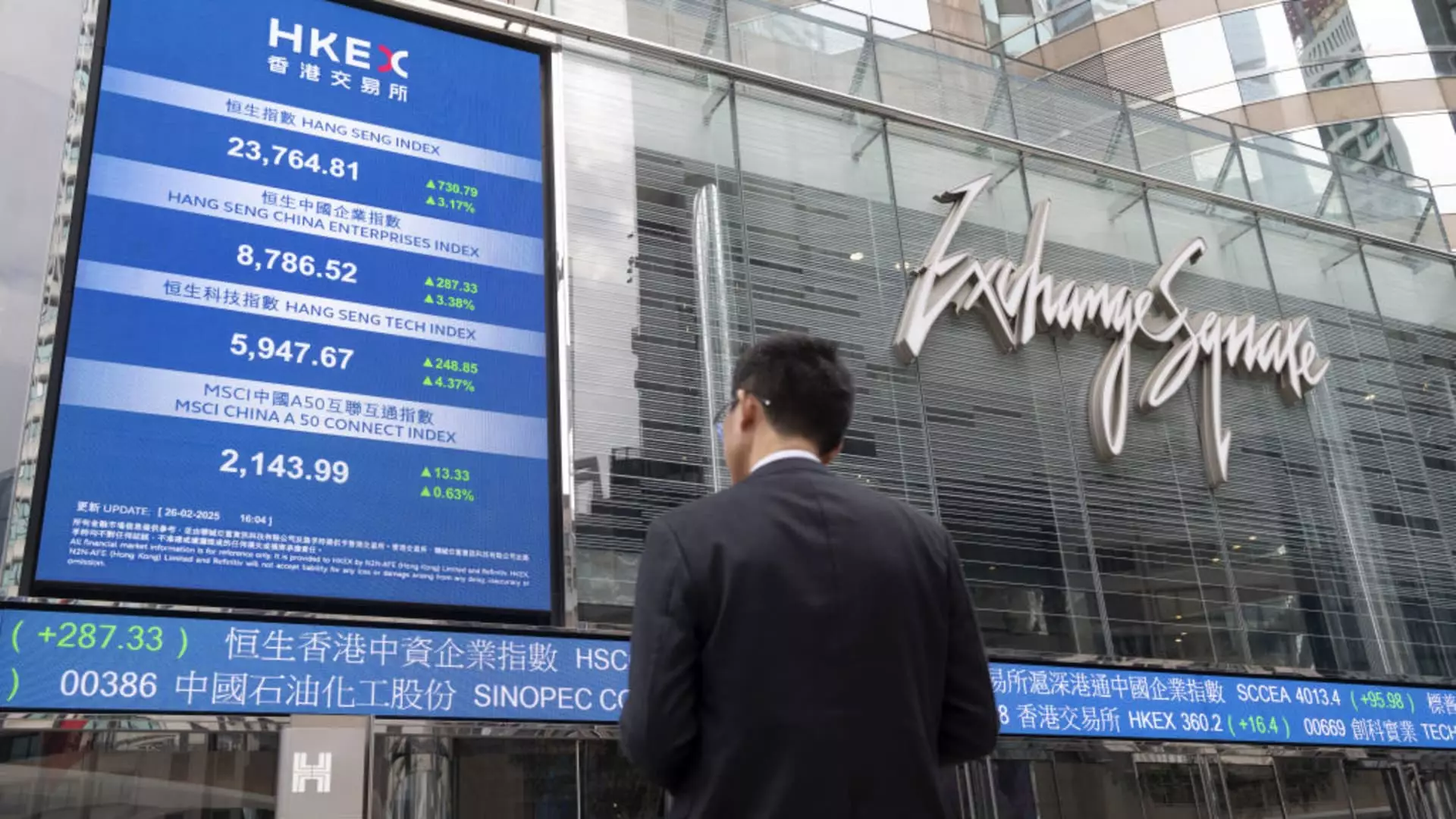As global investors reallocate their focus back to Hong Kong, Chinese companies are seizing a rare chance to list their stocks publicly. Following a significant breakthrough in artificial intelligence by DeepSeek, the enthusiasm surrounding initial public offerings (IPOs) has reached an intensity not seen in over three years. It appears that the stars have aligned, offering a confluence of favorable conditions that could reshape the landscape for IPOs in Hong Kong, despite ongoing trade tensions with the United States.
A critical factor in this revival is the notable interest from U.S. long-term funds, which indicates a growing confidence among investors regarding China’s economic prospects. George Chan, the global IPO leader at Ernst & Young, has pointed out that the collaborative spirit among IPO candidates, investors, and regulatory bodies is creating an environment ripe for successful offerings. “Everyone is working so perfectly together,” he states, emphasizing how this tripartite relationship is nurturing a robust IPO market.
The Impact of AI Breakthroughs on Market Dynamics
The enthusiasm surrounding DeepSeek’s AI advancements has catalyzed a revaluation of tech stocks worldwide, illustrating the profound impact that technological innovation can have on public sentiment. Particularly noteworthy is the ability of Chinese firms to compete with established entities like OpenAI, even within the confines of U.S. trade policies. The resulting optimism propelled the Hang Seng Index to its highest level in three years, demonstrating how advancements in technology can catalyze broader economic recovery.
This excitement isn’t confined to the stock market; it also resonates within the halls of power in Beijing. President Xi Jinping’s unusual engagement with tech entrepreneurs is a clear signal of the government’s intent to foster a more supportive environment for innovation. After years of restrictive measures aimed at tech companies, recent actions suggest a shift towards nurturing the private sector, which is seen as crucial for driving economic progress.
Noteworthy IPOs and Regulatory Changes
The surge in IPO activities culminated in a significant milestone when the bubble tea giant Mixue launched its shares on March 3, 2023, via a highly oversubscribed offering in Hong Kong. Furthermore, the filing by Contemporary Amperex Technology (CATL) for what could be the largest IPO since 2021 indicates a revitalized appetite for public listings among major Chinese enterprises. Such moves are not occurring in isolation; they reflect a broader trend where additional recognized players from mainland China, including Hengrui Pharmaceuticals and Haitian Flavoring and Food, are actively seeking their own fortuitous entries into the Hong Kong market.
KPMG has reported that a total of six IPOs successfully raised over 1 billion Hong Kong dollars in the first quarter, a marked increase from only one listing of this scope in the same period last year. The first quarter yielded 15 IPOs that gathered a total of 17.7 billion HKD, the most robust start to a year since 2021. These statistics illustrate a palpable shift from stagnation to potential growth, but it must also be acknowledged that the journey to truly recover the heights of 2021—when 32 IPOs raised an astonishing 132.7 billion HKD—is still daunting.
Navigating New Regulatory Landscapes
One of the key developments aiding this IPO resurgence has been the adjustment of Hong Kong’s listing rules. These changes are particularly beneficial for companies already listed in mainland China, allowing them to tap into Hong Kong’s capital markets. With regulators encouraging firms to pursue listings in Hong Kong as a method to broaden financing avenues and facilitate cross-border mergers and acquisitions, it’s evident that the regulatory landscape is evolving to meet the needs of modern businesses.
However, the shadow of past regulatory scrutinies still looms large. The aftermath of Didi’s controversial IPO in the U.S. had sparked significant attention and scrutiny on Chinese listings in foreign markets. These regulatory anxieties have not vanished; they serve as a reminder of the complexities involved in navigating international waters, especially as geopolitical tensions continue to simmer.
Hope Amidst Uncertainty
This renewed interest in IPOs and innovations, particularly in artificial intelligence, encapsulates a moment of hope for many stakeholders. While the indicators point towards an encouraging trajectory, analysts and investors alike understand that the volatility of international relations could quickly reverse these trends. As Chan astutely notes, “there could be one single incident happening which could pretty much reverse the trend.”
In a world where patterns of behavior often predict outcomes, industry players remain vigilant, aware that the positive indicators presently visible could mask underlying vulnerabilities. Thus, the future of Hong Kong’s IPO landscape rests not only on the enthusiasm for innovative technology but also on broader implications stemming from an interconnected global economy.

